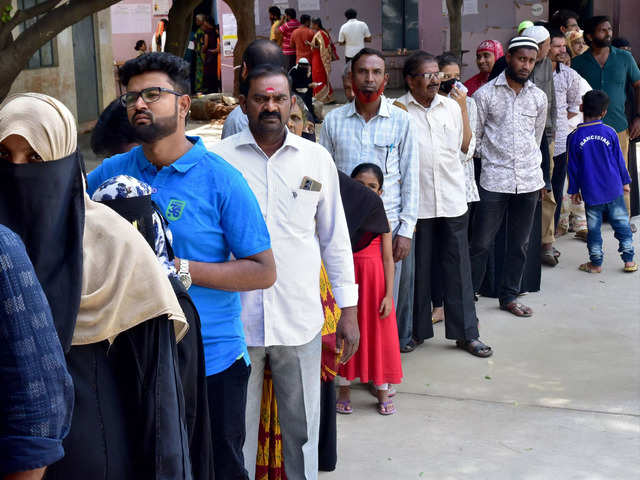
Apurva Purohit, President, Jagran Group and Author of Lady You’re the BossJagran Group
While the Covid-19 induced country-wide lockdown has forced people to work from home, Apurva Purohit, President, Jagran...
Apr 14, 2020, 13:00 IST
media
In praise of WFO
Apr 14, 2020, 13:00 IST
While the Covid-19 induced country-wide lockdown has forced people to work from home, Apurva Purohit, President, Jagran...
- As organizations around the world are having to work-from-home due to the Covid-19 induced lockdown, the world is waking up to the many perks of working remotely.
- However, working from office has its own perks too, writes
Apurva Purohit , President,Jagran Group and Author of Lady You’re the Boss.
The advantages of WFH and solitary environs I am told, get the creative juices going like nothing else, allow for singularity (and thus sublimity) of thought, and a natural progression towards innovative greatness. Office working is for the dull, the mediocre, for those who seek the support of groups to camouflage their ordinariness under a common umbrella of triteness. In a work environment which excels at reducing everything to the mean. By implication this suggests that in this world there are drudges, and then there are geniuses, only the brilliant will never be found punching their cards in at 9 am, Monday to Friday, thank you very much.
I beg to differ. Not because I am the command and control type of boss, currently being vilified and accused of wanting her troops around her to validate her existence. Nor am I a social butterfly, in fact I shun crowds, and neither do I suffer from meeting-itis. A typical working day for me entails sitting mostly alone in my ivory-tower, thinking deep thoughts, interspersed with carefully curated meetings once in a while.
However, I do understand the power of culture, of organizations and of the meaning these give to an ordinary person’s life. Many of us want greatness, but only a few are destined to achieve it. We live, we work, we have a couple of friends, a few hobbies and one fine day life moves on without us. It is the organizations we work for, the teams we work with, the brands we help create, that give us our one point of connection with something larger than our very mundane existence. So many people I have known define themselves by the institutions they are associated with. Their colleges, their clubs, the organization or the industry they spent a bulk of their life working for. And what is wrong in that I wonder? To each of us is given the choice of where we draw our meaning from, which touchstone we want to hold on to, which wagon to hitch our star to; in our desire for greatness and legacy. If some of us derive our sense of self from fitting in as a piece in a jigsaw puzzle, why should we mock this? When both the piece is essential and the puzzle gets completed only when all its pieces are in place.
In this age of polarization, both sides, the WFHome-rs and the WFOffice-ers have drawn battle lines and are not willing to concede an inch. Look at how isolation is helping me get in touch with my true essence and bringing out my best work, hollers the newly converted WFhomer. No noise, no fights over the AC temperature, and no time being wasted in shallow and meaningless collaboration meetings. The individual has triumphed, my long commute is dead and I am lolling in my PJs at noon, as God clearly ordained it to be! Ayn Rand would have been pleased at this surge of devotees at the altar of individualism.
But as we sit in our sanitized home spaces, albeit in comfortable resort wear, seeing the face of humanity only at the other end of the screen, as we try to understand what is really being said by the tiny voices on the other side of the phone, I wonder whether we are increasing the white spaces between each other. For centuries we have relied on body language, on reading the expressions on a face to decide whether the party opposite is friend or foe. The time that we spent together as a tribe built informal channels of communication between us which then transformed into sub conscious thoughts that flowed easily between a team or a group familiar with each other. These implicit channels of communication became the framework on which the fragile threads of trust were warped and wefted; to create a winning team. Take a look at any sports team that has played with each other for a long time and you will know what I mean. As one player passes the ball the other is ready to run with it without either an exchange of words or a look being passed between the two. A voice at the end of a phone line, a distorted image on the video channel or even several written pieces of communication are not going to be able to replicate this knowledge and this understanding that we have imbibed over centuries, no matter how detailed the emoticon is and how closely it replicates the feeling you are trying to express.
A team which mistrusts each other is no team at all and all the arguments in favor of WFH fade away against this one demand that work-life makes of us. The lone hunter cannot survive unless she is part of a larger tribe, and the tribe will not survive unless each member trusts the other.
No doubt, social distancing will help us overcome the current health scare, and the faster we do so, the better we will succeed in taming this monster unleashed so unexpectedly and horrifically in our lives. However, let this not be a clarion call by the WFH supporters. I have yet to see a football team winning matches with each player having practiced in different grounds, nor a doubles match won by a pair which has honed its game separately, in a bespoke environment designed for each individual’s unique requirement.
- This column has been written by Apurva Purohit, President, Jagran Group and Author of Lady You’re the Boss.
INSIDER INTELLIGENCE REPORTS







